Healthy hair starts with a healthy scalp, and ignoring your scalp creates an environment in which dandruff, product buildup, and dead skin cells can wreak havoc. But fear not because there are some simple and natural home remedies that can help tackle the itch and alleviate your symptoms. If you're suffering from scalp issues, we've rounded up 8 itchy scalp home remedies for you to try.
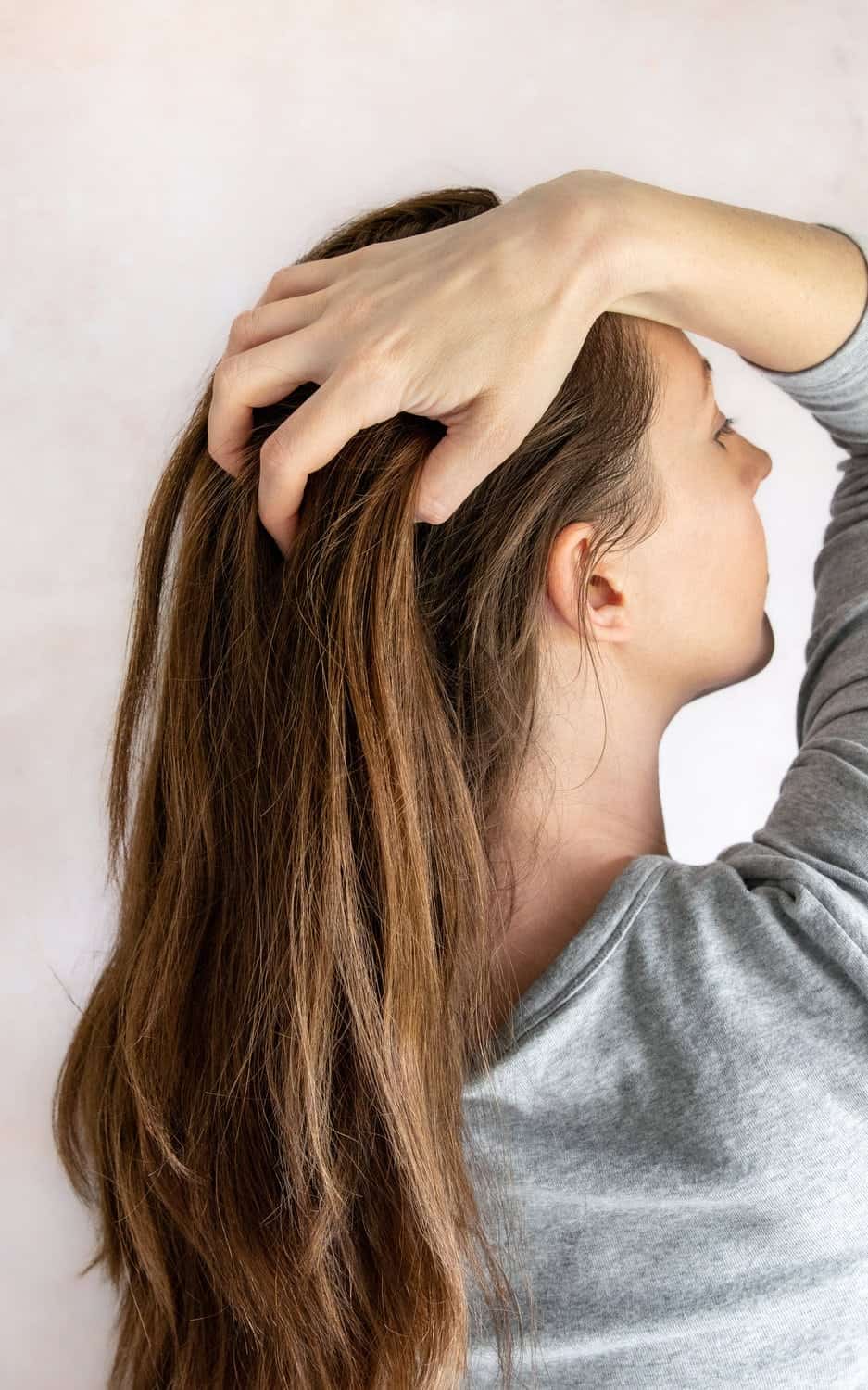
Jump to:
What Causes an Itchy Scalp?
We’re calling it first: scalp care is the new skincare. If you've ever been plagued by an itchy, irritated scalp, you know just how maddening it can be. First comes the redness, flakes, and insatiable urge to scratch. Then the bigger issues like hair loss and breakage appear if you let it go on long enough.
When it comes to scalp itchiness, finding the root cause can be crucial to finding a solution. Tailoring your home remedies to your particular scalp problem may save you tons of time and heartache, so it's best to start there.
If you're not sure what's causing your itchy scalp, then you'll want to talk to your doctor. But here are a few things to consider:
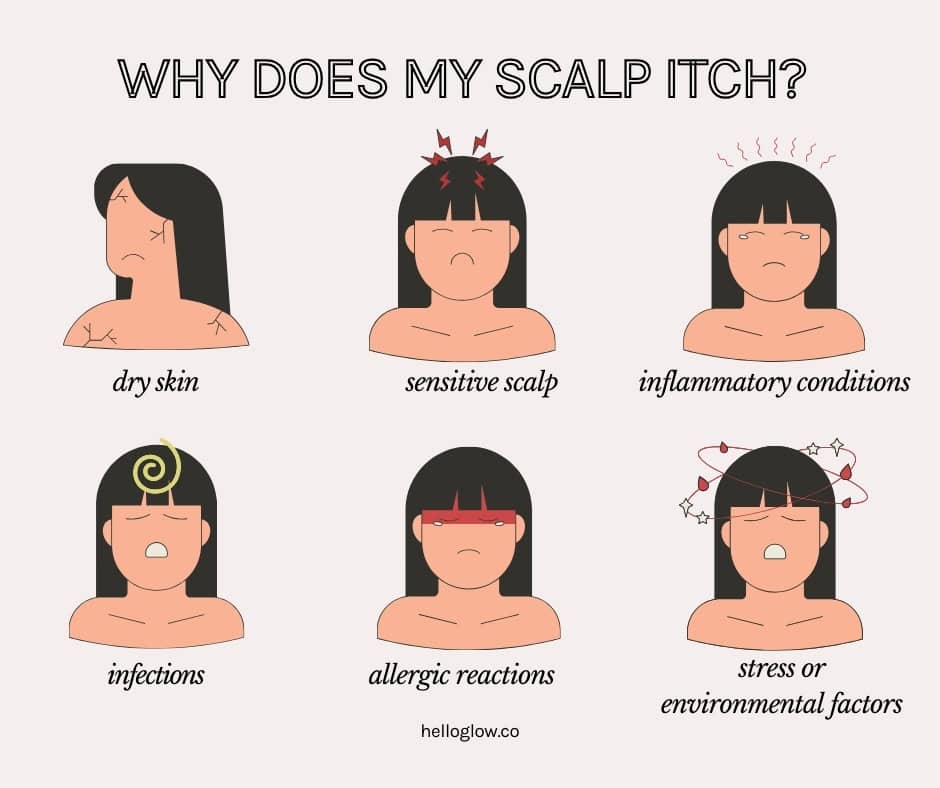
Dry skin
Cold weather, hot showers, and harsh hair products can dry out the scalp, leaving you with itchy, flaky skin.
Sensitive scalp
The skin of the scalp has many nerve endings, making it super sensitive to any little unidentifiable irritation. Studies have shown that about a third [source] to almost one-half [source] of the participants said they had problems with a sensitive scalp. The most common symptoms were itching and prickling, but the triggers were numerous, and there was often not an identifiable cause.
Inflammatory conditions
Anything from an insect bite to seborrheic dermatitis and psoriasis [source] can be the culprit when you find yourself scratching away. Often, other parts of the body will be affected in conditions like eczema, including the face, signaling the underlying cause. This is why you should get some professional medical advice if your itchiness continues for more than a few days.
Infections
If you have an itchy scalp and are losing hair, chances are you may have an infection of some sort. Bacterial infections, scabies, and lice are all possible causes. Fungal infections, such as ringworm (tinea capitis), can also cause scalp itching, scaly patches, and hair loss.
Allergic reactions
Allergic reactions to hair products, such as shampoos, conditioners, and hair dyes, can cause redness, itching, and even hives. Dandruff, caused by inflammation of the scalp due to a hypersensitivity to these products, can cause an overproduction of skin cells, leading to flaking and itching.
Stress or environmental factors
Stress, both internal and external, can also be a factor, as it can disrupt the body's natural balance and lead to a variety of skin and hair issues, including an itchy scalp. Other factors, such as poor diet, hormonal changes, and certain medical conditions [source], can also contribute to scalp itchiness.
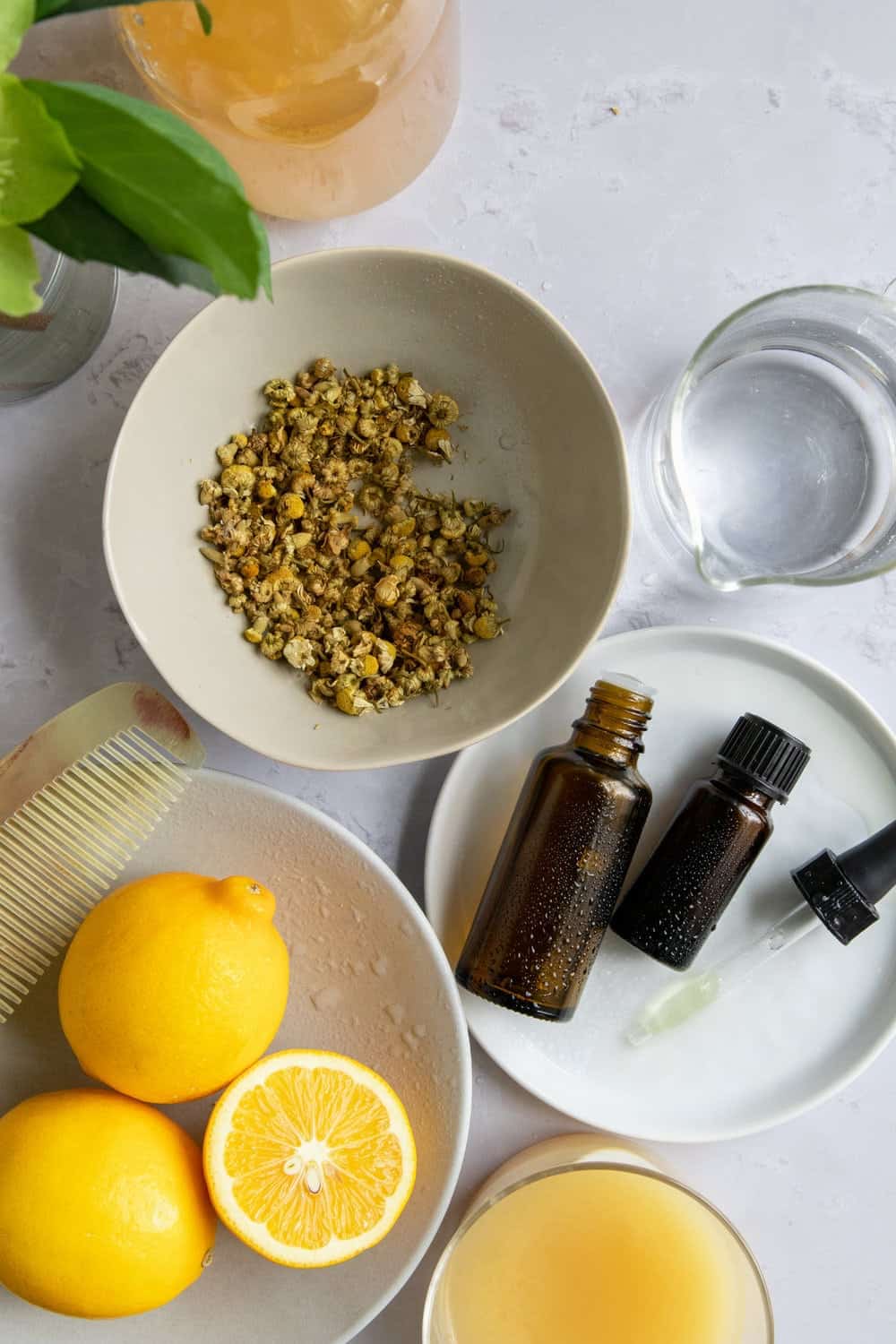
8 Home Remedies for an Itchy Scalp
Just like with most home remedies, a little trial and error can go a long way. Since an itchy scalp can be caused by a bunch of different things [source], you don't want to make the issue worse by throwing everything at it.
Simply try 1 or 2 of these home remedies (at different times) and see how your scalp responds before moving on. If you notice any extra redness, irritation, or itch, then it's best to stop altogether and give your scalp a rest or consult a dermatologist.
Best Oils for Itchy Scalps
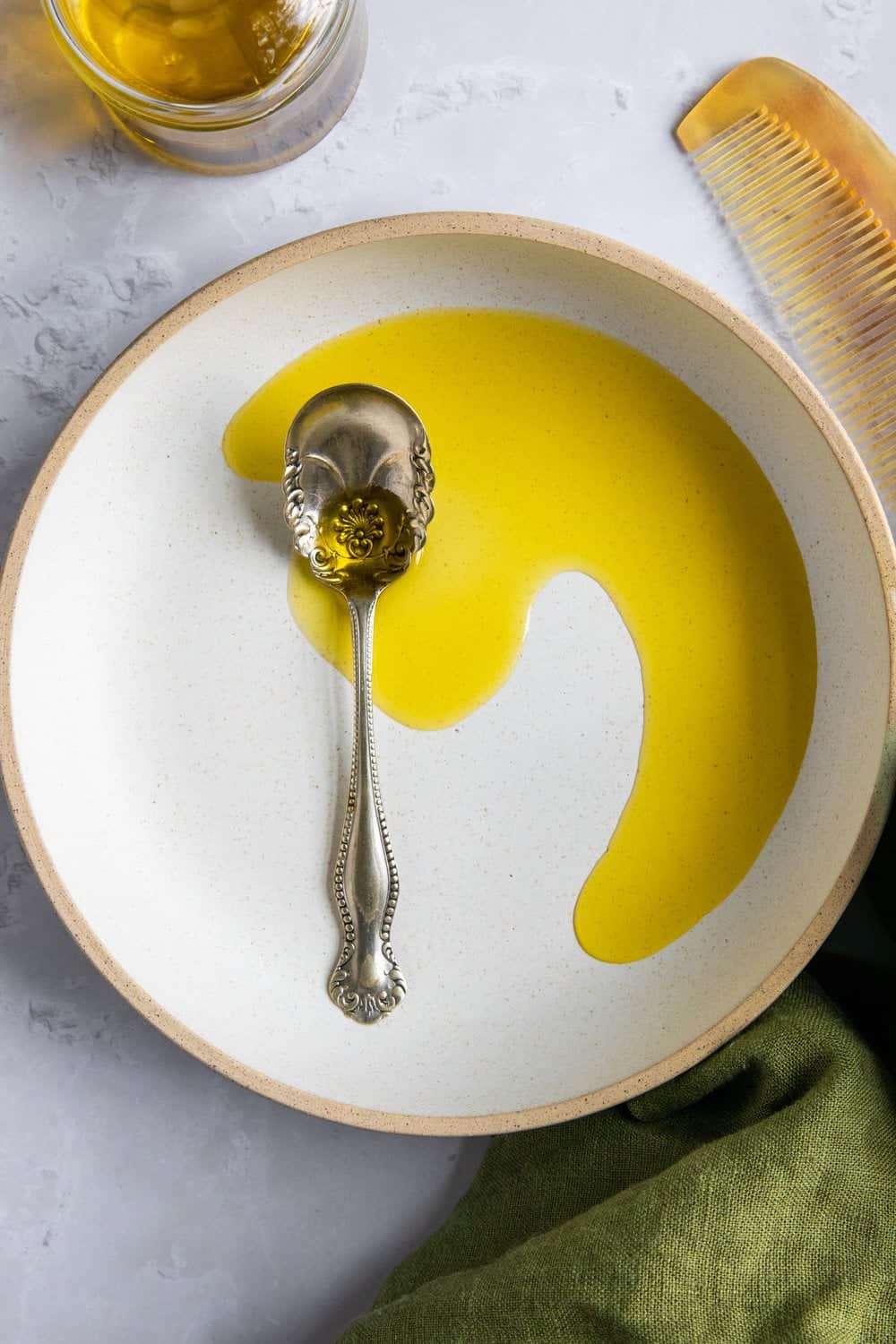
1. Tea tree scalp oil
Tea tree oil is naturally antifungal and antibacterial [source], making it perfect for soothing an itchy scalp caused by bacteria or yeast. Before your next shower, mix 3–5 drops of tea tree oil with a carrier oil like sweet almond or organic extra virgin olive oil, and massage it into your scalp.
Let sit for 15 minutes before rinsing, then shampoo and condition as usual. Not only will your hair smell amazing, but it will also help to reduce the itching and leave your scalp feeling refreshed.
2. Eucalyptus scalp oil
Eucalyptus oil may be known for its invigorating scent, but it also contains anti-inflammatory and antifungal compounds [source] that can help soothe the scalp. To make a healing scalp oil, mix a few drops of eucalyptus essential oil with a carrier oil and massage it into your scalp. After 15 minutes, rinse it off and shampoo thoroughly.
3. Olive oil scalp treatment
A vitamin-rich natural moisturizer, olive oil is said to be amazing for those with both thinning hair and an itchy scalp. It contains oleuropein, which has both anti-inflammatory [source] and hair growth-stimulating [source] effects.
Massage 1 to 2 tablespoons of organic extra virgin olive oil into your scalp, and leave it on for a few hours or overnight before washing it out. Your scalp will love the extra hydration, and your hair will look and feel healthier, too!
Restore the pH of Your Scalp
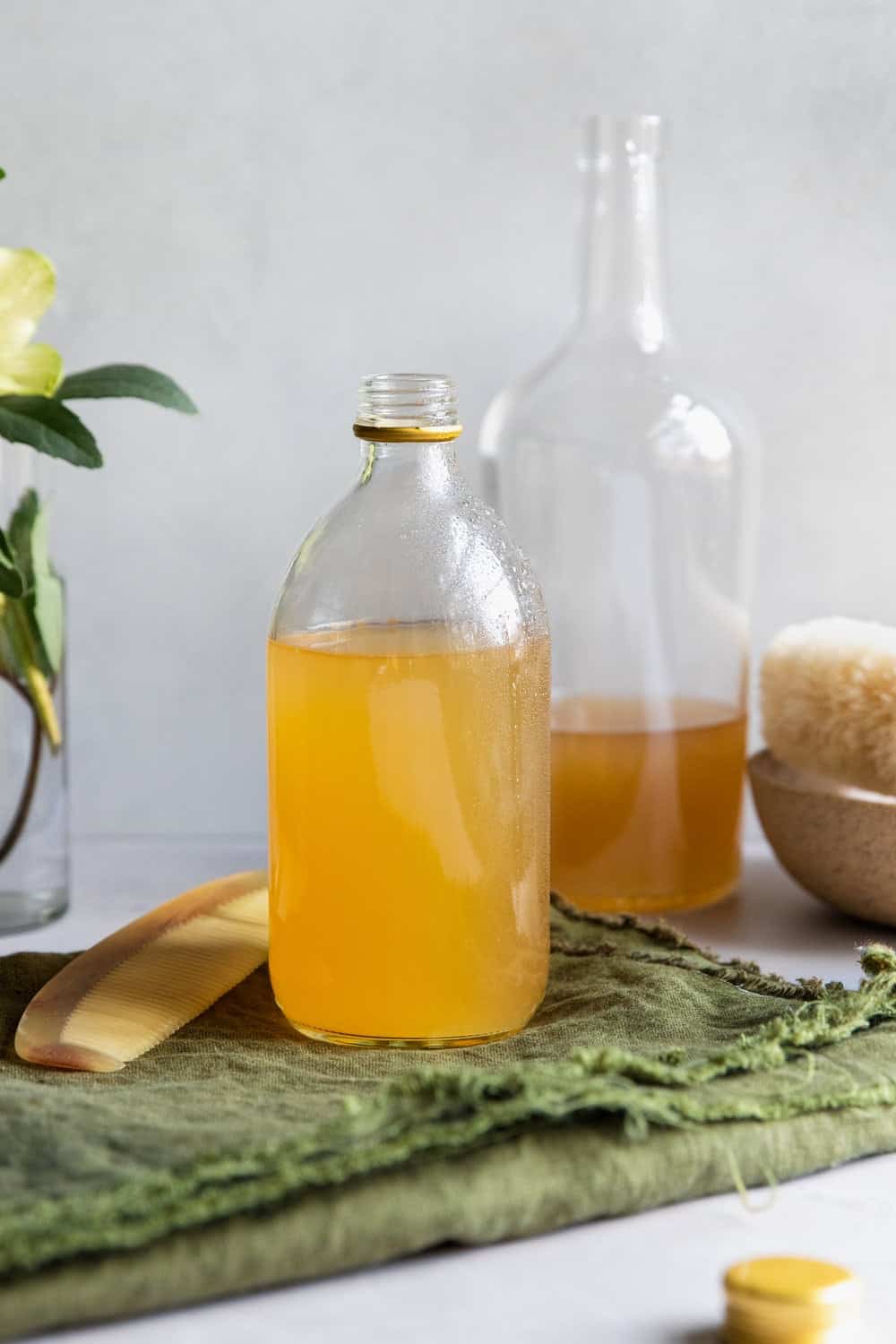
4. Apple cider vinegar scalp rinse
This household staple can help balance your scalp’s pH, making it hard for bacteria and yeast to thrive. To make an ACV hair rinse, mix equal parts apple cider vinegar and water, and pour it onto your scalp (feel free to do this in the shower to keep the mess under control).
Leave it on for a few minutes before rinsing it out of your hair. If you're using an ACV rinse as part of your daily shower routine, shampoo and condition first, then use the rinse at the end.
5. Clarifying lemon juice scalp mask
Lemon juice may help reduce itching and irritation due to its antiseptic and astringent effects [source]. It also changes the pH of your scalp, making it harder for bacteria and yeast to live there.
Apply fresh lemon juice to your scalp, and leave it on for 10 to 15 minutes before rinsing. Not only will it help with itching, but it will also leave your hair smelling fresh and clean.
6. Baking soda scalp scrub
If your itchy scalp is accompanied by flakes, a baking soda scrub might be the perfect home remedy. It works by exfoliating the scalp, removing dead skin cells that may be causing irritation.
Mix a tablespoon of baking soda with water to create a paste, then apply it to your scalp. You can also mix a teaspoon of baking soda into your regular shampoo.
Using your fingertips, gently rub the baking soda into your scalp to exfoliate the dead skin cells. Leave it on for a few minutes before rinsing it off.
Soothing Itchy Scalp Treatments
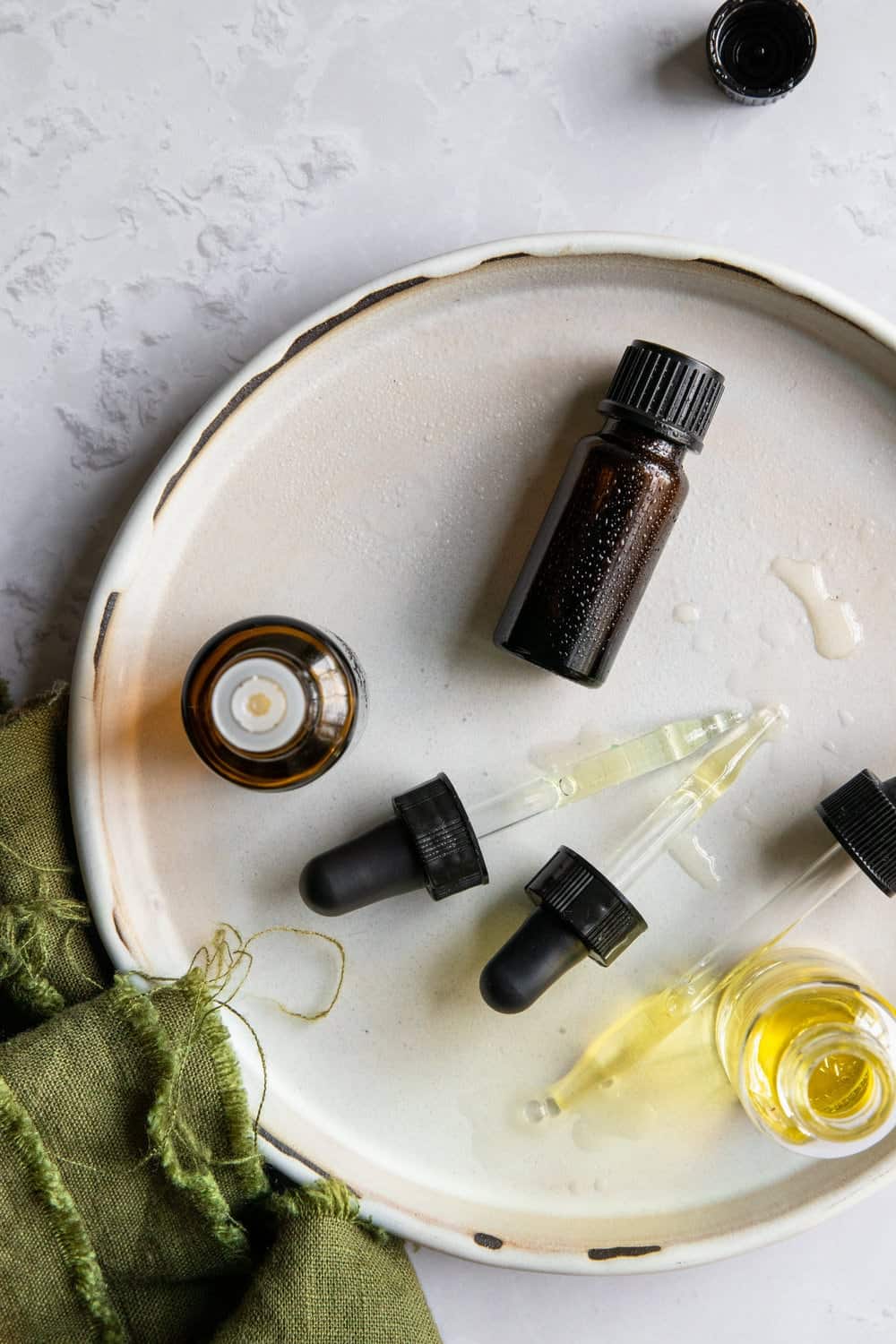
7. Chamomile tea scalp rinse
Chamomile has anti-inflammatory and soothing properties [source] that may help to reduce scalp irritation. Brew some organic chamomile tea, and allow it to cool before applying it to your scalp.
Better yet, combine it with an equal amount of apple cider vinegar and apply it to your scalp. Leave it on for 10 to 15 minutes before rinsing.
8. Soothing aloe vera scalp mask
If you're looking for a more soothing option, aloe vera is the way to go. This plant has anti-inflammatory and moisturizing properties [source] that can help tame the itch and keep hair healthy.
Simply apply fresh aloe vera gel to your scalp, and leave it on for 15 to 20 minutes before rinsing it off. Or combine 16 oz of water with 9 oz of aloe vera juice for a soothing hair rinse.
Itchy Scalp FAQs
Can stress cause an itchy scalp?
Yes, stress and an itchy scalp often go hand in hand. Stress is known to trigger or exacerbate a number of inflammatory skin conditions, like eczema, psoriasis, and seborrheic dermatitis, all of which can cause an itchy scalp [source]. Not to mention stress can also lead to hormonal imbalances that may contribute to scalp irritation and inflammation.
Why is my scalp so itchy at night?
There are a number of reasons why your scalp may feel itchier at night. For starters, you may have dry skin, which feels especially itchy when you're lying down with your head against a pillow. You could have an inflammatory scalp condition, like eczema or psoriasis, that becomes worse at night due to the warmth and humidity of your scalp.
Or you may just be stressed out after a long day at work and notice it more when everything quiets down. If the home remedies mentioned above don't tame your itchy scalp, make sure to consult a doctor or dermatologist who can help you get to the root of the issue.
What causes itchy scalp and hair loss?
Scalp infections, alopecia areata, telogen effluvium, and nutritional deficiencies [source] can all cause both itchy scalp and hair loss. It's important to see a dermatologist to determine the underlying cause of your scalp issues and develop an appropriate treatment plan.
Looking for more natural remedies for beautiful hair?
References:
1. Misery L, et al. Evaluation of sensitive scalp severity and symptomatology by using a new score. J Eur Acad Dermatol Venereol. 2011.
2. Misery L, et al. Sensitive scalp: does this condition exist? An epidemiological study. Contact Dermatitis. 2008.
3. Bin saif GA, et al. The itchy scalp - scratching for an explanation. Exp Dermatol. 2012.
4. Pazyar N, et al. A review of applications of tea tree oil in dermatology. Int J Dermatol. 2013.
5. Surjushe A, et al. Aloe vera: a short review. Indian J Dermatol. 2008.
6. Klimek-Szczykutowicz M, et al. Citrus limon (lemon) phenomenon—a review of the chemistry, pharmacological properties, applications in the modern pharmaceutical, food, and cosmetics industries, and biotechnological studies. Plants (Basel). 2020.
7. Sabo VA, et al. Antimicrobial activity of Eucalyptus camaldulensis Dehn. plant extracts and essential oils: a review. Ind Crops Prod. 2019.
8. Omar SH. Oleuropein in olive and its pharmacological effects. Sci Pharm. 2010.
9. Tong T, et al. Topical application of oleuropein induces anagen hair growth in telogen mouse skin. PLoS One. 2015.
10. Srivastava JK, et al. Chamomile: a herbal medicine of the past with bright future. Mol Med Report. 2011.
11. Graubard R, et al. Stress and skin: an overview of mind body therapies as a treatment strategy in dermatology. Dermatol Pract Concept. 2021.

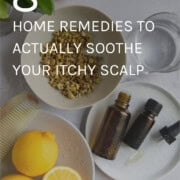
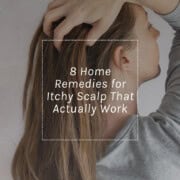


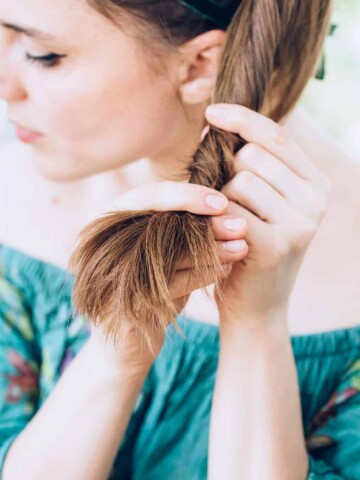
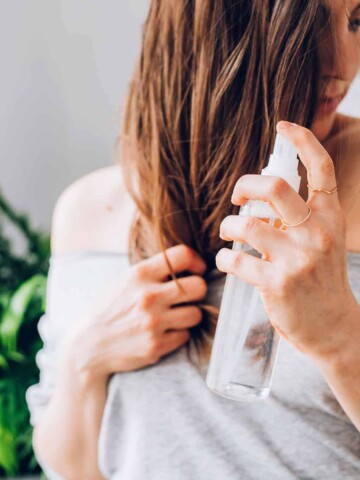
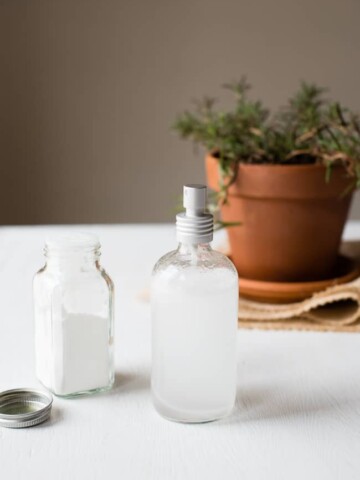
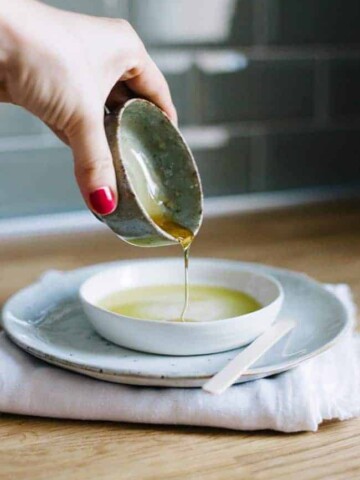

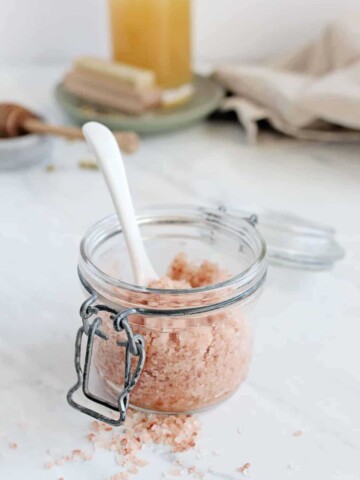
Leave a Comment